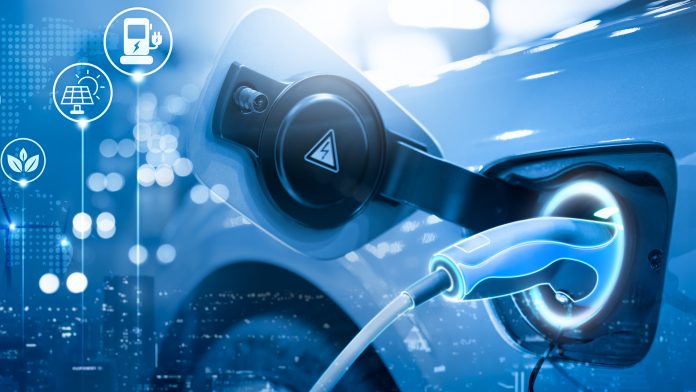Kamran Saleem, Managing Director of MotorServ UK, highlights some of the key challenges and inequalities in different parts of the electric vehicle sector and how governments must respond to this.
The electric vehicle (EV) sector has been rapidly growing in recent years, but it also faces several challenges, from social and cultural to those related to legislation and government policy.
From MotorServ UK’s perspective in the industry, we have seen how restrictive legislation can be – including around the second-hand selling of EVs. There is a combination of stringent legislation in some areas and a complete lack of appropriate guidance in others.
To level the playing field, we must address several key issues in the electric vehicle sector.
International standards and regulations in the electric vehicle sector
With the global nature of the auto industry, international standards and regulations are crucial for ensuring the interoperability of charging infrastructure and the consistency of vehicle safety standards.
For example, differing international standards can affect charging connectors; in Europe, the Combined Charging System (CCS) is widely used, which combines AC and DC charging in a single connector. The CCS connector is also prevalent in the United States, but the Tesla Supercharger network uses its own proprietary connector.
Meanwhile, in Asia, the CHAdeMO connector is still in use in some areas, particularly in Japan. This variety of connectors can challenge cross-region travel or compatibility between different chargers.
Second-hand market and battery degradation
For the electric vehicle sector, there is a need for more guidelines around the second-hand market of EVs and new methods for re-use and selling parts, such as batteries.
Battery degradation over time reduces the range and performance of EVs, and customer concerns about battery health can impact the resale value of used EVs.
Clear policies and standards for battery health reporting and replacement can boost dealer confidence in accepting EVs for resale, which will help establish a reliable second-hand EV market that customers can trust.
Recycling and end-of-life management
Linked to our issues in establishing a trustworthy second-hand market, we know that EV batteries have a limited lifespan for vehicle use. However, they can still store energy even after they’re no longer suitable for driving.
Developing recycling methods for used EV batteries and establishing protocols for their safe disposal are important considerations and require legislative leadership considering the broader impact of battery reuse and removal on a circular economy.
Incentives and subsidies in the electric vehicle sector
Incentives and subsidies play a crucial role in boosting EV adoption. However, these policies can be inconsistent or change rapidly, impacting consumer decisions and industry planning. Stable and long-term incentive structures are essential for the growth of the electric vehicle sector.
Carbon emissions and energy sources
The environmental benefits of EVs depend on the energy sources used for electricity generation. If the electricity grid heavily relies on fossil fuels, the reduction of emissions might be limited.
Governments can promote renewable energy sources and encourage the integration of EVs with smart grids.
Head of Future Markets at the UK National Grid, Graeme Cooper, has long championed the adoption of EVs and is confident the grid can support the extra electricity demand this transition will create. “There is enough energy, and the grid can cope easily,” he explained.
“The growth in renewable energy means this is not static, and smart metering will make this more efficient.
“For example, the growth in wind power from the extra offshore wind farms being developed will adequately meet the future demand for electrifying transport – an extra 100 terawatt hours (TWh) from our current 300 TWh consumed.”
Vehicle cost
EVs are generally more expensive upfront than traditional vehicles due to the cost of batteries.
While the total cost of ownership can be lower due to reduced fuel and maintenance costs, the higher upfront cost can still deter buyers. Governments can provide incentives like tax credits or rebates to make EVs more affordable and boost the production of the electric vehicle industry.
Charging infrastructure
One of the most significant challenges in the electric vehicle sector is the lack of a widespread and efficient charging infrastructure. EVs require access to charging stations, and their availability can significantly influence the adoption of electric vehicles.

Government policies are urgently needed to incentivise the installation of charging infrastructure in public spaces, commercial areas, and residential neighbourhoods. Many consumers are still unaware of the benefits of EVs and how they work.
Indeed, consumers who have invested in an EV are coming up against challenges they’ve not anticipated, including the suitability of UK housing stock for coping with EVs. Many customers don’t have suitable off-road parking or haven’t invested in home charging points.
Hence, they cause dangerous situations by charging EVs with their home equipment and running cables across public walkways.
Range anxiety
Consumers often worry about the limited range of electric vehicles compared to traditional internal combustion engines. While battery technology is improving, longer-range EVs are still relatively expensive.
Governments can encourage research and development in battery technology and provide incentives for affordable long-range EVs.
Battery technology and supply chain
Battery production is a critical aspect of EVs. Challenges include the availability of raw materials like lithium and cobalt, ethical sourcing of materials, and improving battery performance, durability, and cost. Governments can promote sustainable and responsible sourcing and invest in more research and development in this area.
Government policies and how industry and consumers respond to these will play a significant role in shaping the trajectory of the electric vehicle sector. Clear, consistent, and well-targeted policies are essential to address these challenges and promote the adoption of electric vehicles for a more sustainable transportation future.









